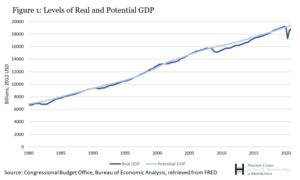Medicare for all is one of the hot button political issues of our time.
Table of Contents
Americans spent A LOT for healthcare
As measured in dollars
While the United States has the best healthcare in the world for people who are well insured through their employers or have the means of paying for platinum health insurance plans themselves, the United State quite clearly has the worst healthcare SYSTEM of the industrial world.
The United States pays $10,966 per person per year for healthcare. The comparable average cost of industrial nations is $5,697.
So the United States spends not quite twice as much, compared to the average of what other industrial nations spend.
The UK spends $4,653 per person per year. Canada spends $5,418. And coming in second (behind the USA) is Switzerland at $7,732.
As measured as a % of GDP
I suppose the good news is there is one other country in the world that spends a higher percentage of their GDP for healthcare. It’s Tuvalu, a small nation in the Polynesian sub region of Oceania in the pacific ocean.
Having said that, that the USA spends 16.89% of GDP on healthcare, which is much higher than other industrial nations, is not good news. I’m thinking it probably indicates “leakage” of money in our healthcare system.
The next highest cost healthcare system in the industrial world is Switzerland at 11.88%.
And our healthcare outcomes are worse
Says who?
Some researchers at The Commonwealth Fund, who published this article titled U.S. Health Care from a Global Perspective, 2019: Higher Spending, Worse Outcomes?
And some bits of US healthcare system costs are downright weird
Did you know the following about the US health care system?
- US per capital health-care spending nearly quadrupled from 1980 to 2018?
- Most health care spending is on hospitals and professional services?
- Five percent of Americans account for half of all US healthcare spending in 2017?
- Health care spending pre privately insured person is three times higher in some parts of the US than in others?
- In many cities, health care prices vary widely for the same service?
- Market concentration is high for specialist physicians, insurers, and especially hospitals?
- US health care administrative costs are the highest of all advanced economies?
- US physician labor supply is tightly restricted?
- Surprise billing is assocated with high health care costs?
You probably did know that last one, because most Americans at some point or another have received a surprise medical bill for something they thought was covered by insurance, only to be told by the insurance company why it isn’t.
There is however some good news about surprise medical billing. In the closing days of 2020, Congress enacted and President Trump signed into law the No Surprises Act which provides much greater consumer protection against surprise medical bills.
This new law goes into effect on 1 Jan 2022.
Consumers are held harmless from the cost of unanticipated out-of-network medical bills, which arise in emergencies, when patients generally have little to no say in where they receive care or from who.
However, I did learn that for some reason ambulance services are exempt, which seems super weird, as what is more “emergency” that the need for an ambulance.
I mention the ambulance exemption, because since they exempt ambulances, I’m guessing they exempted other stuff as well, I just don’t know what.
But Medicare for All would be expensive
Whether this is true or not depends on how you look at it.
It would greatly increase direct expenses of the federal government, which would in turn increase federal taxes Americans pay.
But, it would eliminate most (I’m certain a private health insurance industry would exist to sell policies offering services above and beyond what’s included in the “for all” coverage) private health insurance premiums, copays, coinsurance payments, etc.
And because the bulk of the profit expenses of the US health care system would disappear, whatever that slice of our total healthcare expenses are would disappear. Having said that, I was unable to find data telling me how much this is.
Per this article in The Hill, 22 studies agree that Medicare for All would save Americans money.
But, the federal government part DOES need to be paid for. So, how?
The economist Stephanie Kelton provides a really good answer to the question of “How Can We Afford Medicare for All”?
At first glance, it seems weird to ask how we’ll pay for something that costs less than what we’re currently paying, but the question is not really about how we PAY for it, but about the tax implications of paying for it.
Would you believe it may be necessary to LOWER taxes as part of rolling out Medicate for All?
Seriously.
“We might in fact need tax cuts to pay for single payer”.
Stephanie Kelton
While I’m sure at first glance that may seem counter intuitive to most people, it has to do with how sovereign currencies actually work, and the relationship between federal government spending, federal taxes, and the overall “shape” of the economy.
To find out why, listen to the “video” below.



